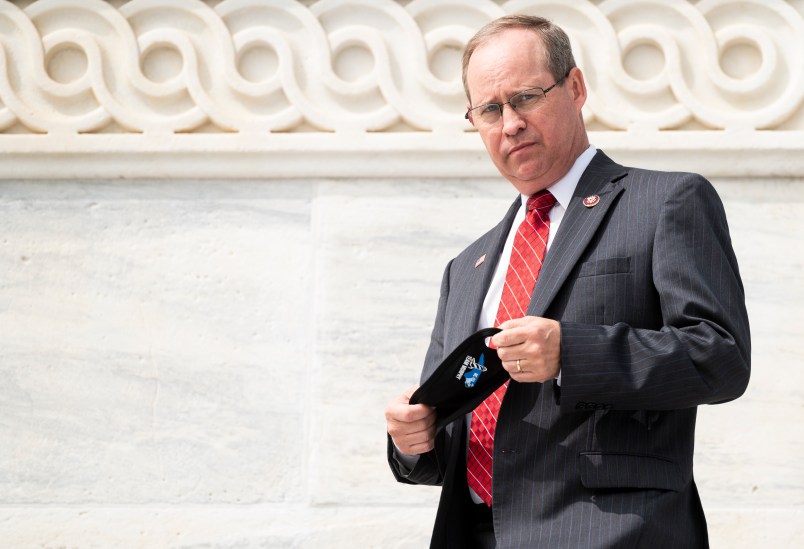Two congressional Republicans objected to the hiring of a New York Times reporter to a university professorship because of her work on the Times’ “1619 Project,” newly public documents reveal.
In a letter to the chancellor of the University of North Carolina at Chapel Hill, Reps. Virginia Foxx (R-NC) and Greg Murphy (R-NC) said they objected to the hiring of Times reporter Nikole Hannah-Jones in part because they said the journalist’s work was “purposefully divisive.”
“Her portrayals of ‘White America’ are purposely divisive, a characteristic that objectively questions her ability to lead a program at UNC,” the members of Congress wrote in a letter dated May 5. “In a time when we should bring people together, this hire represents division.”
The letter, which was flagged Monday by Lindsay Ellis, a reporter for the Chronicle of Higher Education, shows just how intense the right-wing opposition was to Hannah-Jones’ hiring.
Despite support from UNC-Chapel Hill’s chancellor and faculty, the university’s board of trustees failed to approve a tenure offer for Hannah-Jones after intense opposition from the right, as NC Policy Watch first reported in May. That opposition included emails from university megadonor Walter Hussman, Jr., the namesake of the UNC journalism school where Hannah-Jones would have been the Knight Chair in Race and Investigative Journalism.
Ultimately, the board reversed course and voted to approve Hannah-Jones’ tenure — but she opted instead to teach at Howard University.
Commenting on the letter from Foxx and Murphy, Hannah-Jones wrote on Twitter, “I still cannot believe some of the most powerful people in [the] US think I am worthy of so much effort.”
Hannah-Jones’ introductory essay to the 1619 Project won the Pulitzer Prize for commentary. The project as a whole, which was published in The New York Times Magazine, sought to reframe American history around the arrival of the first enslaved Africans in Virginia in the 17th century.
But Republicans have largely used the project as a shorthand for their objection to efforts to re-examine the United States’ founding generation, many of whom owned slaves.
The letter from Reps. Foxx and Murphy, whose offices did not respond to TPM’s request for comment, was part of a larger cache of documents released by the university. The Republicans also accused Hannah-Jones of creating a “fallacious depiction and outright misrepresentation of American history.” Curiously, they cited two interviews with historians published by the World Socialist Web Site.
The Republicans, like many of their colleagues, have made a political issue out of promoting “free speech” on college campuses.
In a press release last year announcing the “Campus Free Speech Restoration Act,” Murphy said, “The right to free speech outlined in the First Amendment is perhaps the most important mechanism of our republic. A free and open public square to debate ideas is a hallmark of any healthy and functioning democracy.”
And in a hearing in 2018, Foxx asserted that “postsecondary institutions are functioning more and more like ideological echo chambers devoid of diverse thought.”



